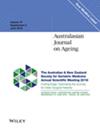Correlation between dexmedetomidine and postoperative sleep quality in older patients undergoing intestinal surgery
Abstract
Objective
This study examined the correlation between dexmedetomidine and postoperative sleep quality in older patients following intestinal surgery.
Methods
A total of 112 older patients were randomly assigned to receive either saline (Group A) or dexmedetomidine (Group B). Sleep quality was evaluated using the Pittsburgh Sleep Quality Index (PSQI) before surgery and on postoperative days 1, 3, 7 and 30. Urinary melatonin and cortisol levels were measured, and pain intensity was assessed using the Visual Analogue Scale (VAS) at various time points. Logistic regression analysis identified factors influencing postoperative sleep quality.
Results
Both groups showed increased PSQI scores postoperatively, with Group A scoring higher than Group B. Group B exhibited a significantly lower incidence of sleep disorders on Days 1 and 3. Urinary melatonin levels decreased in both groups, with Group A showing lower levels, while cortisol concentrations increased, particularly in Group A. Higher VAS scores were also noted in Group A. Patients not receiving dexmedetomidine had a greater prevalence of sleep disorders. Logistic regression revealed dexmedetomidine dosage, gender and VAS scores at 24 h as significant factors affecting sleep quality.
Conclusions
Dexmedetomidine enhances postoperative sleep quality in older patients undergoing intestinal surgery by reducing cortisol levels, increasing melatonin production and effectively alleviating pain, thereby supporting better recovery outcomes.

 求助内容:
求助内容: 应助结果提醒方式:
应助结果提醒方式:


